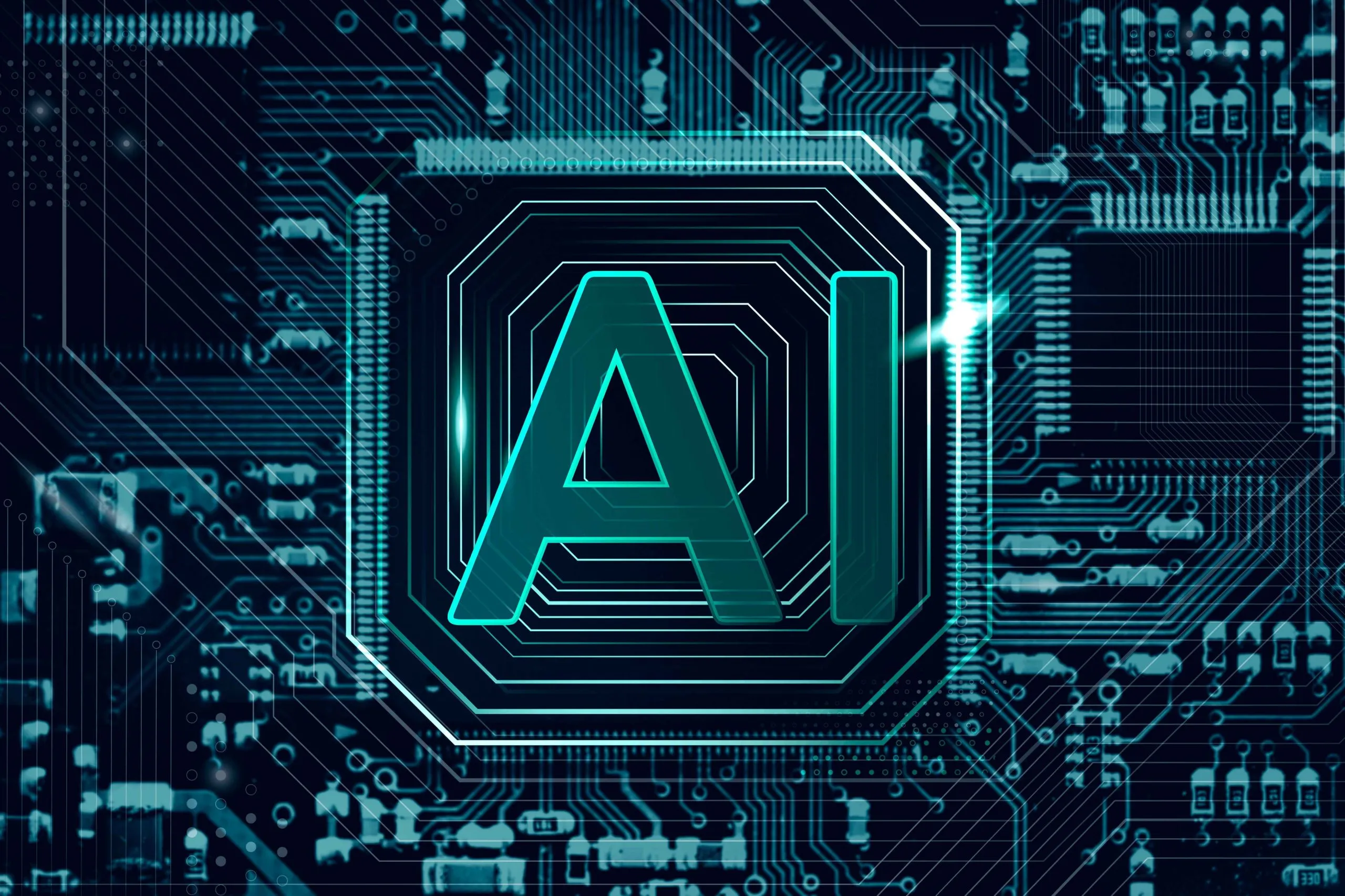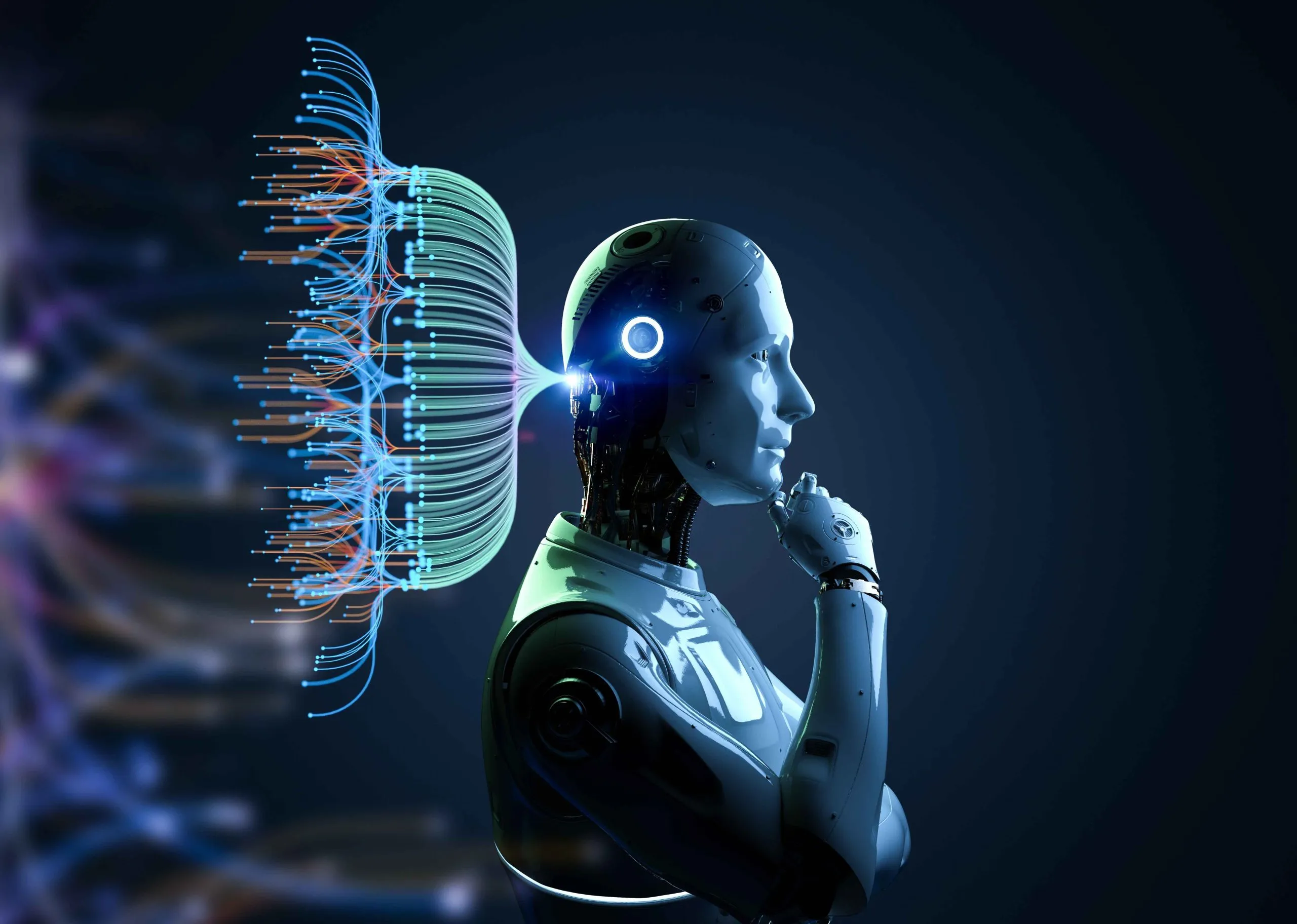Struggling to keep up in a rapidly changing market? Our AI development company can help you thrive. We use the latest tech stacks, including GPT-4, Stable Diffusion, Python, and TensorFlow, to improve workflows, boost customer experiences, and foster innovation.
Our AI development services empower you by automating processes, providing data-driven insights, and enhancing customer experiences, leading to increased efficiency and competitive advantage.

AI development companies offer AI technology consulting services to help businesses develop AI strategies and implement AI solutions tailored to their needs, ensuring optimal performance and growth.
Under 'Fine-tuning models,' an AI development company offers the service of optimizing pre-trained AI models by fine-tuning them on specific datasets, making them more accurate and effective for the client's particular use cases.
'AI Conversational Tools,' we offer the service of creating and implementing advanced chatbots, virtual assistants, or other AI-driven communication tools to enhance customer interactions, support inquiries, and streamline the user experience.
We offer 'End-to-end AI model development' to offer the comprehensive service of designing, building, and deploying AI models from the initial concept to the final implementation, providing a seamless and fully integrated AI solution.
We offer tailored services to design and build unique AI applications, software, or systems that cater to the specific requirements and challenges of individual businesses, optimizing their performance and efficiency.
Under 'AI Model Integration and Optimization,' an AI development company offers the service of seamlessly incorporating AI models into existing systems and fine-tuning them to maximize performance, ensuring efficient and effective integration of AI technology.
Empower your business with intelligent AI agents designed to automate tasks, enhance user interactions, and drive real-time decision-making. Our expertise lies in building advanced, autonomous agents using LLMs, NLP to streamline operations across industries.
We offer scalable enterprise AI development services to help automate operations, make data-driven decisions, and unlock new efficiencies. From predictive analytics to intelligent automation, our solutions are tailored to meet the complex demands of modern enterprises.
Empower your business with our AI servies for cutting-edge technology.

We take pride in our cutting-edge technology stack. This carefully curated collection of technologies forms the foundation of our AI solutions, enabling us to deliver exceptional results to our clients.
AI’s impact spans across diverse industries, transforming operations and fostering breakthroughs. Below, we highlight some noteworthy industries:

AI assists in medical imaging analysis, drug discovery, personalized treatment plans, and virtual health assistants for patient support.
AI powers fraud detection, algorithmic trading, credit scoring, and chatbots for customer service, enhancing efficiency and security.
AI enables personalized recommendations, demand forecasting, inventory management, and cashierless checkout experiences.
AI enhances autonomous vehicles, route optimization, traffic management, and fleet maintenance, promoting safety and sustainability.
AI aids adaptive learning platforms, intelligent tutoring systems, plagiarism detection, and automated grading.
AI powers content recommendation algorithms, video and audio analysis, and virtual reality experiences.
Enhance travel experience, enable efficient customer service, and streamline processes with AI.
WE ARE INDIA’S # 1
Experience our adaptive Artificial Intelligence development solutions customized to match your business requirements, optimizing operations and unleashing innovative opportunities. Collaborate with us to guarantee your business’s triumph and harness the full potential of AI.
From startups to big enterprises, development
From startups to big enterprises, development
From startups to big enterprises, development
From startups to big enterprises, development
From startups to big enterprises, development
From startups to big enterprises, development
From startups to big enterprises, development
Drop us a line and we'll get back to you immediately to schedule a call and discuss your needs personally.


AI Development involves creating artificial intelligence systems and applications that can perform tasks typically requiring human intelligence. AI encompasses a wide range of technologies, from rule-based systems to advanced machine learning algorithms. The primary goal is to develop AI systems that can learn from data, adapt to new situations, and make intelligent decisions.
Historical Background: AI has a rich history that dates back to the 1950s. The field saw initial optimism but later faced periods of reduced funding and progress known as AI Winters. However, recent advancements in computational power and access to vast amounts of data have fueled a resurgence in AI research and development.
AI in Healthcare
AI is revolutionizing healthcare with applications like disease diagnosis using medical imaging analysis, predictive modeling, and personalized treatment planning based on patient data. AI-driven healthcare systems can improve accuracy, speed, and efficiency in diagnostics and treatment.
AI in Customer Support and Communication
AI-powered chatbots and natural language processing enable businesses to provide instant customer support and interact with users in a more human-like manner. AI chatbots are available 24/7, reducing response times and enhancing customer satisfaction.
AI in Finance and Economics
AI is increasingly used in finance for fraud detection, identifying anomalies in financial transactions, and risk assessment. In the economic domain, AI models can analyze vast amounts of data to predict market trends and optimize investment strategies.
AI in Autonomous Systems
AI plays a crucial role in developing autonomous systems like self-driving cars and robotics. AI algorithms process sensor data and make real-time decisions, allowing these systems to navigate complex environments and perform tasks autonomously.
The following are some of the most notable benefits of AI:
Increased Efficiency and Productivity
AI can automate repetitive and time-consuming tasks, freeing up human resources to focus on more strategic and creative endeavors. This increased efficiency leads to improved productivity and resource allocation.
Data-Driven Decision Making
AI-driven insights and predictive analytics help businesses make data-informed decisions. By analyzing vast datasets, AI systems can identify patterns, trends, and correlations that humans might miss.
Cost Savings and Resource Optimization
Automating tasks through AI reduces the need for manual labor, leading to cost savings for businesses. AI can optimize resource allocation, streamlining processes and minimizing waste.
Solving Complex Problems
AI has the potential to tackle complex challenges in various fields, such as scientific research and environmental impact assessment. AI models can process vast amounts of data, identify patterns, and generate solutions that human experts may overlook.
Addressing Societal Challenges
AI has the potential to revolutionize healthcare by improving disease detection and treatment. It can also play a crucial role in disaster management and relief efforts, optimizing resource allocation and response strategies.
Ethical Concerns
AI systems are vulnerable to biases present in the data used for training. This can lead to unfair and discriminatory outcomes, affecting certain demographic groups more than others. Addressing these biases and ensuring fairness is a significant ethical challenge in AI development.
Security and Vulnerabilities
AI systems may be vulnerable to attacks, such as adversarial attacks on computer vision systems or data poisoning attacks on machine learning models. Ensuring the security of AI systems and protecting against potential vulnerabilities is crucial.
Job Displacement and Reskilling
The widespread adoption of AI has raised concerns about job displacement, as some tasks previously performed by humans may become automated. Preparing the workforce for the AI era through upskilling and reskilling is essential to mitigate these concerns.
Complexity and Interpretability
Deep learning models, in particular, are complex and often regarded as black boxes, making it challenging to interpret their decisions. Developing explainable AI techniques is vital to understand how AI systems arrive at their conclusions and ensure transparency in critical applications.
Data Collection and Preprocessing
High-quality data is essential for AI development. Data collection involves gathering relevant and diverse datasets that represent the real-world problem. Data preprocessing, like cleaning and normalization, ensures data is suitable for training AI models.
Data Labeling and Annotation
Labeled data is critical for supervised learning. Data labeling involves assigning relevant labels or categories to data instances. Annotation tools and crowdsourcing platforms are often used for efficient data labeling.
As AI systems rely on vast amounts of data, ensuring data privacy and security is paramount. Compliance with data protection regulations and adopting encryption and access controls are necessary to safeguard sensitive information.
Fairness and Bias in AI
To address bias, developers must carefully curate training data and employ techniques that ensure balanced representation of different groups. Fairness-aware algorithms and audit mechanisms help mitigate bias in AI systems.
Transparency and Ability to Explain
AI models must be interpretable and explainable to build trust with users. Techniques like LIME (Local Interpretable Model-agnostic Explanations) and SHAP (Shapley Additive ExPlanations) provide insights into model decisions.
Accountability and Responsibility
AI developers and organizations must take responsibility for the consequences of their AI systems. Establishing AI ethics committees and adhering to ethical frameworks ensures accountability and ethical AI development.
Social and Cultural Implications
Developers need to consider the social impact of AI systems and involve diverse stakeholders in the development process. Ensuring AI applications are inclusive and beneficial to society is a crucial ethical consideration.
Assessing Business Needs
Identifying areas where AI can provide the most value is the first step in AI adoption. Organizations should evaluate their existing processes and challenges to determine where AI can make a significant impact.
Building an AI Team
Developing AI capabilities requires skilled professionals, including data scientists, machine learning engineers, and domain experts. Organizations can build an in-house AI team or collaborate with AI development partners.
Infrastructure Requirements
AI development often requires significant computational resources, especially for deep learning models. Organizations must consider the infrastructure needed for AI training, such as GPUs or TPUs, and decide between cloud-based or on-premises solutions based on their specific requirements and budget.
Integrating AI into Workflows
Integrating AI systems into existing workflows can be a complex process. Organizations should plan for change management and properly train employees to ensure a smooth transition. Addressing any resistance to AI adoption among employees is essential for successful integration.

Advancements in AI Technologies
The future of AI holds promising advancements, including the integration of quantum computing with AI algorithms. Quantum AI could potentially solve problems that are currently infeasible for classical computers.
Explainable AI and AI Trustworthiness
Researchers are actively working on developing explainable AI models, ensuring that AI systems can provide clear explanations for their decisions. The focus on AI trustworthiness aims to create reliable and accountable AI systems.
AI in Augmentation of Human Abilities
The future will likely see a focus on human-AI collaboration, where AI acts as a supportive tool to enhance human abilities. AI-powered tools may assist professionals in creative tasks, problem-solving, and decision-making.
Ethical and Policy Considerations
As AI continues to play a significant role in society, ethical considerations and policies will become increasingly important. Addressing concerns related to the impact of AI on jobs, privacy, and social equity will require thoughtful and comprehensive regulations.
Social Impact of AI
AI’s impact on the job market is a topic of ongoing research and discussion. While some jobs may be automated, AI is also expected to create new job roles focused on AI development, data analysis, and AI system maintenance.
With us, you can choose from multiple hiring models that best suit your needs


It is an expert autonomous team comprising of different roles (e.g. project manager, software engineers, QA engineers, and other roles) capable of delivering technology solutions rapidly and efficiently. The roles are defined for each specific project and management is conducted jointly by a Scrum Master and the client's product owner.


Suitable for every scale of business and project, team augmentation helps add required talent to you team to fill the talent gap. The augmented team members work as part of your local or distributed team, attending your regular daily meetings and reporting directly to your managers. This helps businesses scale immediately and on-demand.


When project specifications, scope, deliverables and acceptance criteria are clearly defined, we can evaluate and offer a fixed quote for the project. This is mostly suitable for small-mid scale projects with well documented specifications.
Time & Material Model:Suitable for projects that have undefined or dynamic scope requirements or complicated business requirements due to which the cost estimation is not possible. Therefore, developers can be hired per their time.
Ans. A leading AI app development company with expertise in AI solutions, ValueCoders offers industry-specific applications and a client-centric approach. We offer customized development, agile practices, data security, and cost-effective solutions with a proven delivery process.
Ans. The cost of AI application development services can vary depending on the complexity of the project, the size of the dataset, infrastructure requirements, and the expertise of the development team. You can contact our experts and we will send you a quote within 24 hours.
Ans. The time an Artificial Intelligence app development company takes to complete a project depends on the complexity of the application and the availability of data. Simple AI projects might take a few weeks, while more sophisticated ones may require several months or longer.
Ans. Yes, AI models can be integrated into existing software systems through APIs or by embedding them into the application’s architecture.
Ans. A leading AI application development services provider, we employ techniques like data preprocessing, bias detection, and fairness-aware algorithms to minimize bias and ensure fairness in AI models.
Ans. Our AI application development company prioritizes data privacy and security by complying with relevant regulations, implementing encryption measures, and ensuring access controls to protect sensitive information.
Ans. We employ rigorous testing and validation procedures to ensure that AI models produce accurate and reliable results. Ongoing monitoring helps maintain model performance over time.
Ans. We regularly update AI models to adapt to changing data distributions and user requirements. Maintenance includes monitoring performance, bug fixes, and addressing potential issues.
We are grateful for our clients’ trust in us, and we take great pride in delivering quality solutions that exceed their expectations. Here is what some of them have to say about us:
Trusted by Startups and Fortune 500 companies
We can handle projects of all complexities.
Startups to Fortune 500, we have worked with all.
Top 1% industry talent to ensure your digital success.



Let's discuss how we can bring your vision to life.